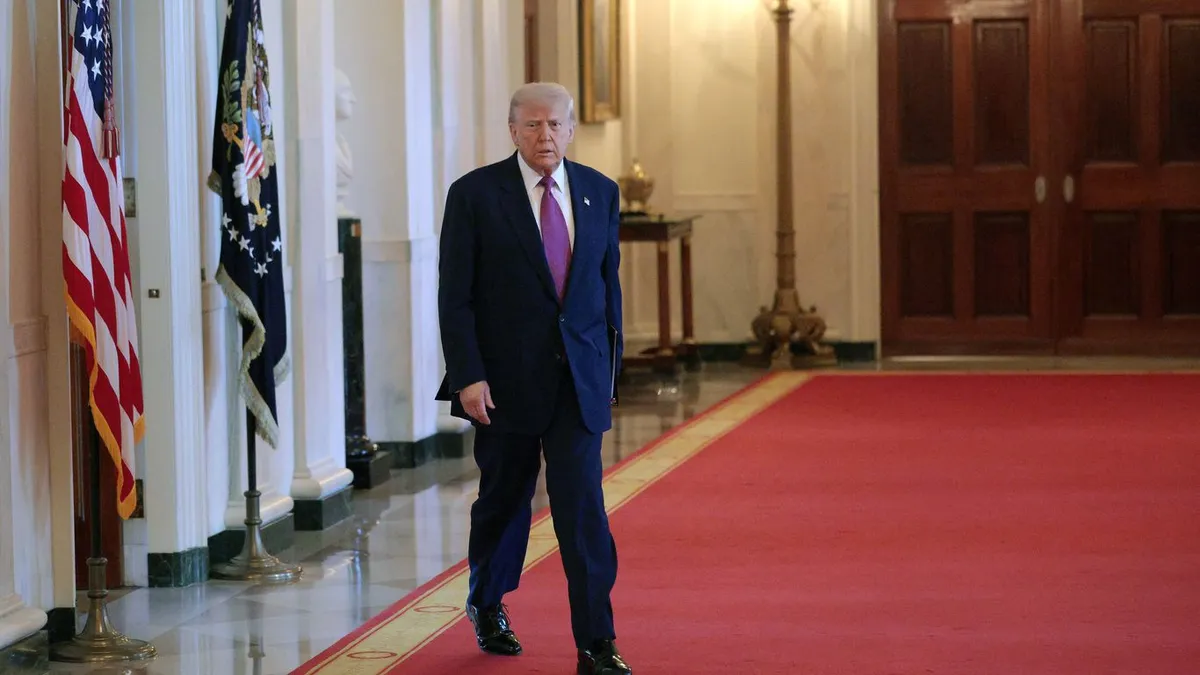
One critical question weighs heavily on President Trump these days, as his advisers reveal: If the United States engages in Israel's war and deploys its formidable bunker buster bombs, will these weapons effectively obliterate Iran's most heavily fortified nuclear facility? This question is not merely theoretical; it has significant implications for U.S. foreign policy and national security.
Trump's uncertainties regarding the potential success of such an attack are a driving force behind his hesitance to proceed. According to U.S. officials, the president is acutely aware of the risks involved in a military strike against Iran, particularly regarding whether the action would lead to a prolonged conflict in the Middle East. Most importantly, Trump wants to ensure that any military action would genuinely achieve the goal of dismantling Iran's nuclear program.
"We're going to be ready to strike Iran, but we aren't convinced yet that it's necessary," a U.S. official stated. Trump’s approach underscores a desire to avoid unnecessary military entanglements while still being prepared to act if the situation demands it. The primary target in any potential strike would likely be the Fordow uranium enrichment site, strategically located within a mountain south of Tehran, which remains a top priority for Israel.
While Israel recognizes the importance of neutralizing the Fordow site, they currently lack the 30,000-pound bunker-buster bombs and the B-2 bomber aircraft required for such an operation. In contrast, the U.S. possesses both the necessary bombs and aircraft positioned within striking distance of Iran. Israeli officials express concern that if Fordow survives any military engagement, it would allow Iran's nuclear ambitions to continue.
When asked about the feasibility of using the Massive Ordnance Penetrator (MOP) to destroy Fordow, Trump has sought input from his military advisers. Pentagon officials have assured him of the bomb's effectiveness; however, it remains unclear if Trump is entirely convinced. Notably, MOPs have never been deployed in actual combat, although they underwent extensive testing during their development phase.
One senior U.S. official highlighted that while the bunker buster is operationally effective, executing a successful strike involves more than just deploying the bomb and declaring victory. "The end game for us is simple: no nuclear weapons," the official stated, suggesting that the objectives may differ between U.S. and Israeli strategies. The U.S. is prepared to consider a precise, surgical strike if deemed necessary and effective, contingent on Trump's judgment.
Israeli officials are optimistic about the potential for a U.S. strike but assert that they could inflict considerable damage on Fordow independently if necessary. Recent comments from Prime Minister Benjamin Netanyahu and Ambassador to Washington Yechiel Leiter imply that the Israel Defense Forces have tactical options beyond traditional airstrikes, including the possibility of a high-risk commando raid.
As Trump deliberates whether to escalate U.S. involvement in the conflict, Steve Witkoff, his special envoy, has been actively communicating with Iran’s foreign minister, Abbas Araghchi. U.S. officials disclose ongoing efforts to open a dialogue, with Witkoff reporting varying levels of interest from the Iranian side. This diplomatic outreach coincides with an upcoming meeting in Geneva involving the foreign ministers of France, Germany, and the U.K., alongside the EU foreign policy chief.
During a recent Situation Room meeting, Trump expressed frustration as time ticks away regarding Iran's nuclear activities. U.S. officials emphasize that all options remain on the table. Speaking to reporters, Trump noted that he has not yet decided on a military strike against Iran and is keeping diplomatic avenues open. In contrast, Iran's mission to the UN has declared that it will not negotiate under duress, particularly criticizing Netanyahu.
Trump believes that maintaining ambiguity regarding U.S. military intentions may exert additional pressure on Iran. "I have ideas, but I like to make the decision at the last second," he remarked. The unfolding situation remains fluid, with key developments expected as diplomatic efforts continue alongside military considerations.